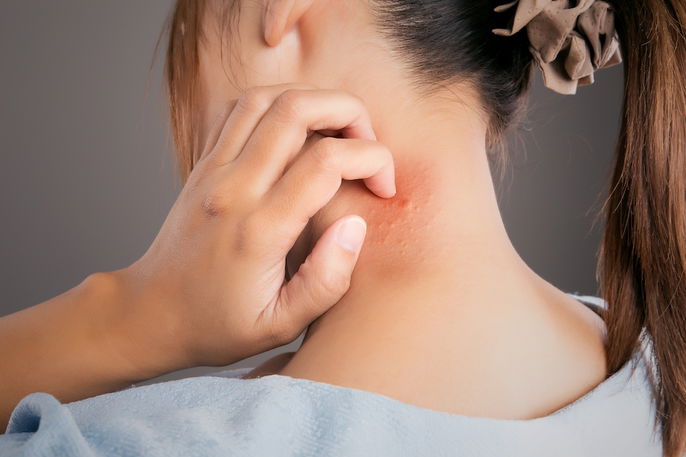Black fly bites are not usually considered to be serious. They can cause mild symptoms such as slight swelling, redness and itching, which tend to improve within a few days.
Although it is rare, there is a risk that black fly bites may cause a serious allergic reactions or transmit an infectious disease like onchocerciasis. In some cases, a black fly bite may also become infected, causing more redness, swelling and pain.
If you have a black fly bite that presents with intense symptoms or with symptoms that do not improve after 24 hours, you are advised to consult general practitioner for assessment and treated as necessary, why may involve antihistamines and corticosteroids.

Common symptoms
The main symptoms of black fly bites are:
- A small spot with blood on the skin
- Redness around the site of the bite
- Itching of the skin in the affected area
- Small swelling of the skin where the bite occurred.
Black fly bites are not usually painful, however, some people experience a slight stinging sensation. Depending on the number of bites present on the skin, symptoms such as itching, redness and swelling can quickly become more intense.
Symptoms usually improve within a few days without any specific treatment, however, they tend to worsen in the first 24 hours before beginning to disappear.
Are black fly bites dangerous?
Black fly bites are not usually dangerous, however, in rare cases, some people may develop anaphylaxis, which is a severe allergic reaction. This condition will present with symptoms such as increased skin swelling, diarrhea or difficulty breathing.
In addition, black fly bites, like other mosquito bites , can also transmit diseases, such as onchocerciasis. This can cause symptoms such as intense itching, recurrent conjunctivitis and even vision loss.
Swollen black fly bite
In some cases, the black fly bite may become inflamed, with increased redness at the site of the bite, in addition to other symptoms such as fever, pus and worsening swelling.
If you suspect you may have contracted an infection, you should seek urgent medical attention. If a diagnosis is confirmed, antibiotics may be prescribed in the form of ointments, tablets and, in more severe cases, intravenously.
Treatment options
Normally, there is no need for specific treatment, as symptoms of black fly bites improve within a few days. However, it is recommended to keep the site of the bite clean and avoid scratching the skin to avoid causing wounds that can increase the risk for infection. Applying a cold compress to the site also helps to reduce swelling, redness and itching.
In more severe cases, the doctor may advise other measures to relieve symptoms more quickly, like:
1. Ointments
Ointments containing corticosteroids, such as dexamethasone or hydrocortisone, may be prescribed to relieve symptoms such as itching and redness.
2. Antiallergic medications
Medications with antiallergic action, such as antihistamines and corticosteroids, may be indicated in cases where there is intense itching, in addition to redness and swelling.
How to prevent
To prevent black fly and other mosquito bites, it is recommended to:
- Use mosquito repellents on areas of the skin which are most exposed to mosquito bites, such as the arms, legs and feet;
- Wear long-sleeved shirts and pants to cover areas of the body that are normally more exposed, such as arms and legs;
- Use mosquito nets and screens at home, on windows and over beds;
- Avoid bodies of water that are stagnant, such as buckets, basins and swimming pools, near the house;
- Do not leave doors and windows open all the time, to prevent mosquitoes from entering the house.
You can also prepare homemade repellents made with cloves or citronella, which have insecticidal properties and that can be used to prevent bites. Read more about natural mosquito repellents that you can make at home.






























